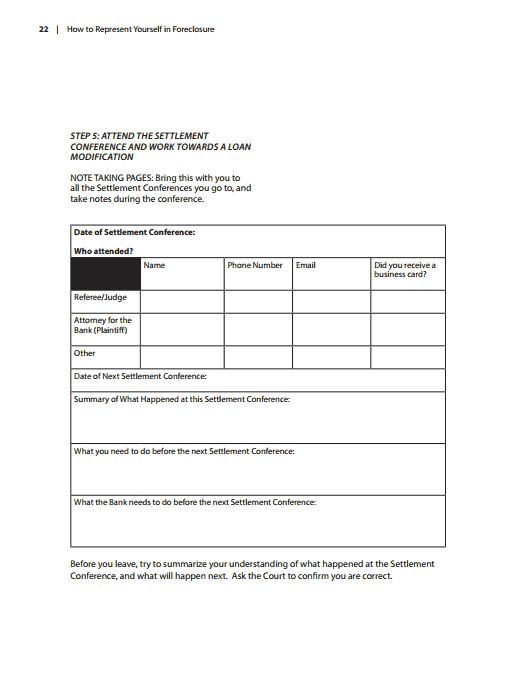The reasons you ended up in foreclosure are probably long and complicated, and each borrower’s situation is slightly different. The Settlement Conference is a chance for you to share your story with the Court and the Bank. By preparing to tell your story before the Settlement Conference, it is more likely you will tell your story in a way that everyone can understand. They need to know why you are in foreclosure, and what you have done to resolve your situation. The clearer you are to the Court and the Bank, the easier it will be to resolve the foreclosure. You should write out answers to the following questions
- What are the reasons for falling behind on your mortgage?
- What have you done to try to keep your home?
- Were there any terms of your loan that were different than what you were promised?
- You should also be able to talk about basic
information about your loan, such as the
following:
- The current monthly payments are $_____. The current interest rate is: ______% and my interest rate (circle one) changes/does not change. I last made a payment on my loan in _______________ (list month and year).
- Have you attempted to work with your Bank to find a solution already? If so, make a list below of all the people you have contacted, and the times you have sent in documents before the Settlement Conference.
